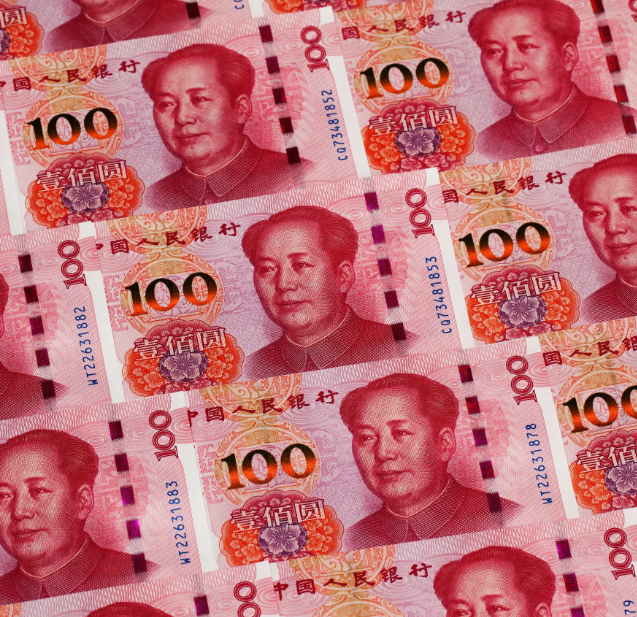China is one of the largest economies in the world, and China National Currency, the yuan (also known as renminbi), is increasingly becoming an important player in global finance. In this article, we'll provide you with a comprehensive overview of the Chinese yuan, including its history, significance, exchange rate, and more.
The Chinese yuan is the official currency of China, and it is issued by the People's Bank of China. The yuan is also known as the renminbi, which literally means "the people's currency." The yuan is increasingly becoming an important player in global finance and is used as a reserve currency by several central banks around the world.
A Brief History of the China National Currency
The history of the Chinese yuan dates back to the Ming dynasty in the 14th century when paper money was first used in China. Over the centuries, the Chinese currency has gone through several changes, including being pegged to the U.S. dollar until 2005, when the Chinese government decided to adopt a managed floating exchange rate system.
The Role of the Chinese Yuan in Global Finance
The Chinese yuan is becoming an increasingly important player in global finance, and it is now the world's fifth most popular currency for international payments. The Chinese government has been actively promoting the use of the yuan in international trade, and it has signed several bilateral currency swap agreements with other countries, including Australia, Canada, and South Korea.
How the Chinese Yuan is Used
The Chinese yuan is used for a wide range of transactions within China, including paying for goods and services, investing, and borrowing. The yuan is also used for international trade, and it is becoming more common for Chinese companies to invoice their exports in yuan rather than U.S. dollars.
The Chinese Yuan Exchange Rate
The exchange rate of the Chinese yuan is determined by the market forces of supply and demand, but the Chinese government has a significant influence on the currency's value. The government uses a variety of tools, including setting a daily midpoint for the yuan's exchange rate, to control the currency's value.
The Future of the China National Currency
The Chinese government has ambitious plans for the yuan, and it aims to make it a major international currency that can rival the U.S. dollar and the euro. The government has been taking steps to liberalize the yuan's exchange rate and to promote its use in international trade.
Advantages and Disadvantages of Using the Chinese Yuan
Using the Chinese yuan has both advantages and disadvantages. On the one hand, the yuan is increasingly becoming an important player in global finance, and it can be used to diversify currency holdings. On the other hand, the yuan is still a relatively new currency, and it is subject to government intervention, which can make its value unpredictable.
How to Buy and Sell Chinese Yuan
Buying and selling Chinese yuan is relatively straightforward, and it can be done through a variety of channels, including banks, foreign exchange bureaus, and online currency brokers. However, it's important to be aware of the risks involved in trading foreign currencies, including the potential for currency fluctuations and geopolitical events that can impact the currency's value.
Frequently Asked Questions (FAQs)
- What is the difference between the yuan and the renminbi?
The yuan and the renminbi are two names for the same currency, but the yuan is the more commonly used term.
- How does the Chinese government control the value of the yuan?
The Chinese government uses a variety of tools, including setting a daily midpoint for the yuan's exchange rate and buying and selling yuan in the foreign exchange market, to control the currency's value.
- Is the Chinese yuan a safe investment?
Like any investment, there are risks associated with investing in the Chinese yuan, including currency fluctuations and geopolitical events that can impact the currency's value. However, the yuan is increasingly becoming an important player in global finance and can be used to diversify currency holdings.
- Can I use the Chinese yuan outside of China?
The Chinese yuan is increasingly being used in international trade and can be used in some countries outside of China, but its acceptance as a form of payment may be limited in some places.
- What are the benefits of using the Chinese yuan in international trade?
Using the Chinese yuan in international trade can help to reduce currency risk, lower transaction costs, and increase access to the Chinese market.
References
- "Chinese Currency Renminbi (RMB)" - Bank of China International: https://www.bocinternational.com/boci/en/global/currency/RMB/
- "A beginner's guide to the yuan" - The Guardian: https://www.theguardian.com/business/2015/aug/11/chinese-yuan-beginners-guide
- "What Is the Yuan (CNY)?" - Investopedia: https://www.investopedia.com/terms/y/yuan.asp
